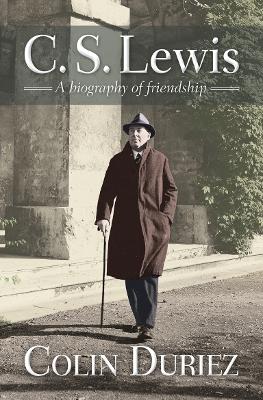
brokentune
Written on Feb 25, 2020
I originally picked this up because a) I was looking for a better biography of Lewis than the last one I read ... I don't remember the author but it was dreadful; and b) I was trying to find out whether Duriez' style of writing biography works for me.
He seems to have written extensively on Lewis, Tolkien, and the Inklings, but he also seems to have a biography of Dorothy L. Sayers forthcoming. It is scheduled for publication in October and I was intrigued because I hope that he will use his Lewis/Tolkien/Inklings background to answer some of my questions about Sayers' interaction with the group and its members.
The C.S. Lewis biography turned out to be surprisingly good in that Duriez seemed to include a lot of quotes from letters - especially, from correspondence between "Jack", his brother Warnie, and their father. This was fantastic and provided exactly what I was looking for in terms an insight into what they were like in relation to each other.
Another aspect I really liked, was that he tried to present facts and not justify Lewis as some other biographers I have read. If I read a biography, it helps if the author is enthusiastic about his subject, but it is a deterrent if the biographer turns out to be a "fan-boy" or "fan-girl".
Duriez clearly is enthralled with the Inklings, having written about them several times, but I believe he managed to keep that distance that is required between the biographer and his subject to write a credible biography.
For the most part, Duriez also refrained from giving meaning or interpreting events in Lewis' life against his later work and faith. This is something I very much appreciate. However, there were instances where he did so and I found them jarring, even if there were only a few of them.
Where I felt the book was lacking, was the way that Duriez mentioned some of Lewis' theories, but didn't go into any explanations. So, it felt like some parts of the book were really superficial. Of course, the book was not supposed to be an analysis of Lewis entire work but if concepts are important enough to mention them in this biography, then I expect to be given an explanation so I can understand why and how they are important with respect to the biography.
I felt this was missing a lot.
I also did not appreciate that with respect to Lewis' relationship with his wife, Duriez mentioned that she was a huge influence on his writing, but then withheld any examples or evidence to substantiate this comment. In fact, he the chapter on Joy really short and to my amazement merely referred the reader to William Nicholson's play Shadowlands.
I'm a big fan of the play. I'm a big fan of the film which is also based on Nicholson's play. However, including a brief quote by Debra Winger - taken from an "endorsement" on the back cover of Don W. King's Out of my Bone: The Letters of Joy Davidman - describing Joy as "keen spirit, mind, and wit" does not fill me with a lot of confidence about how Duriez handled his research, even if - all credit to him - he added an end note to even mention that the source here was a book jacket endorsement.
Anyway, there are aspects I enjoyed immensely about this biography, and I would recommend it to anyone who has never read a biography of Lewis' before and wants to start somewhere.
However, I would also advise caution: This book merely scratches the surface of Lewis' life and what it does contain about his work is negligible.
